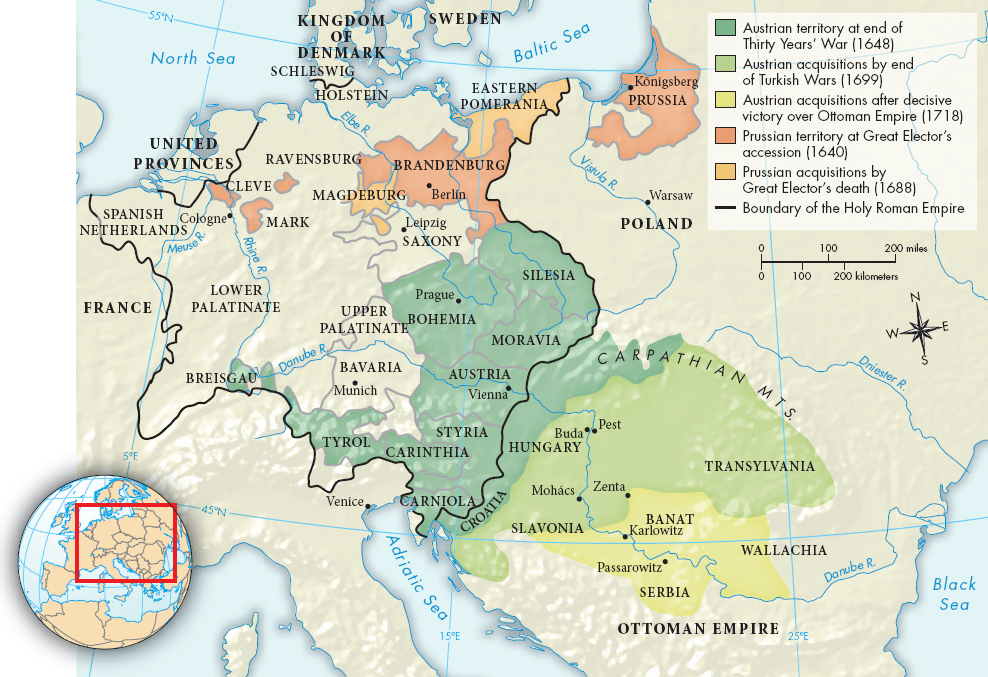Understanding Western Society
Printed Page 463
Prussia in the Seventeenth Century
In the fifteenth and sixteenth centuries, the Hohenzollern family had ruled parts of eastern Germany as the imperial electors of Brandenburg and the dukes of Prussia. When he came to power in 1640, twenty-
Frederick William profited from ongoing European war and the threat of invasion from Russia when he argued for the need for a permanent standing army. In 1660, he persuaded Junkers in the estates to accept taxation without consent in order to fund an army. They agreed to do so in exchange for reconfirmation of their own privileges, including authority over the serfs. Having won over the Junkers, the king crushed potential opposition to his power from the towns. One by one, Prussian cities were eliminated from the estates and subjected to new taxes on goods and services. Thereafter, the estates’ power declined rapidly because the Great Elector had both financial independence and superior force.

During his reign, Frederick William tripled state revenue and expanded the army drastically. In 1688, a population of 1 million supported a peacetime standing army of 30,000. In 1701, the elector’s son, Frederick I, received the elevated title of king of Prussia (instead of elector) as a reward for aiding the Holy Roman emperor in the War of the Spanish Succession.